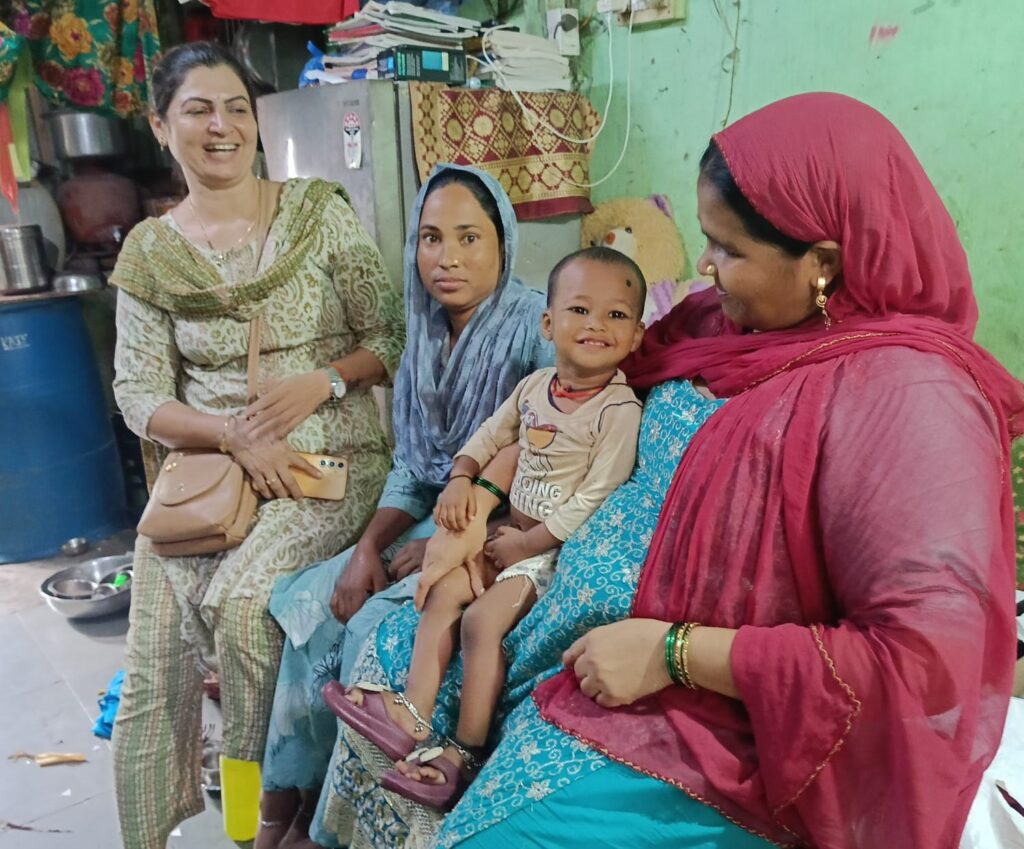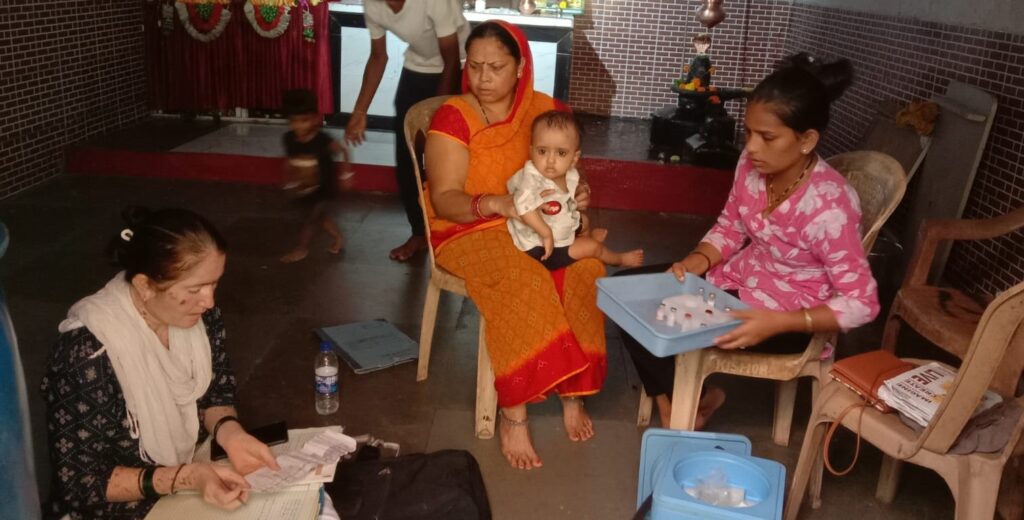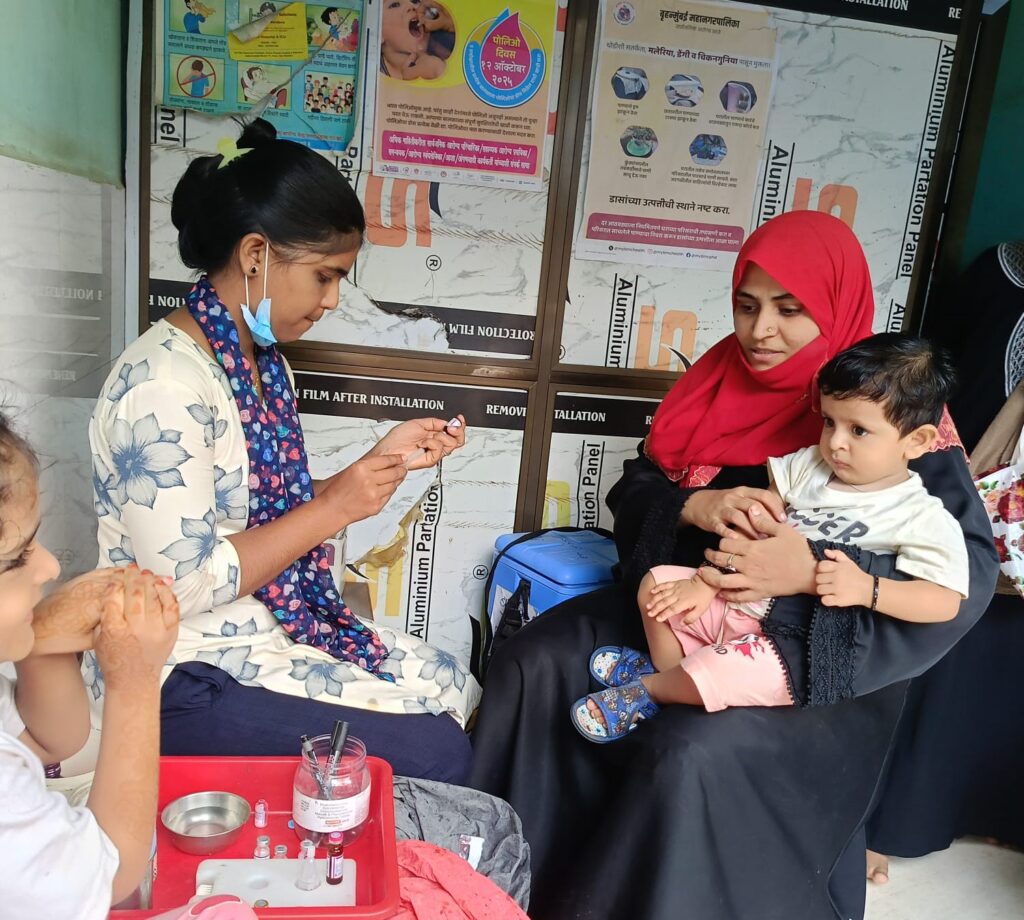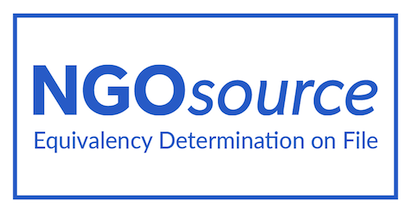Building Trust, Protecting Futures: How Community Volunteers Strengthen Immunization in Urban Slums
Nov 7 2025 / Posted in Child nutrition
- By Neha Jagtap (Documentation Coordinator, SNEHA)
Introduction
Every year, World Immunization Day reminds us that vaccines save millions of lives by preventing deadly diseases and promoting healthier communities. Yet, behind every successful immunization effort lies a story of trust— trust between families, health systems, and communities.
In vulnerable urban settlements, this trust is often fragile. Families struggle with misinformation, fear of side effects, limited access to services, and competing daily priorities. But through years of consistent community engagement, the SNEHA has learned that immunization is not just a medical process— it is a social journey.
Through its long-term interventions in Mumbai’s M/East ward, SNEHA has built bridges between families, health workers, and systems. Its trained community volunteers— known as Community Action Group (CAG) members— are at the heart of this effort, working tirelessly to ensure no child is left behind.
Understanding the Barriers
Immunization coverage in informal settlements is often affected by multiple factors— social, cultural, and systemic. Many families live in temporary or rented homes, moving frequently due to livelihood instability. Health posts or outreach camps may be inaccessible or inconsistent. Misinformation, fear of vaccine reactions, or mistrust in the system further discourage caregivers.
For mothers already juggling daily wage work, childcare, and household responsibilities, visiting a health post can feel like an additional burden. In such situations, a trusted local face— someone who listens, empathizes, and accompanies them— can make all the difference.
That is where community volunteers like Shahin step in.
Shahin’s Story: Turning Fear into Trust
In the narrow lanes of Dr. Zakir Hussain Nagar, Shahin, a dedicated CAG member with SNEHA since 2016, is known for her calm and reassuring approach. She supports Anganwadi Workers, helps families access health services, and motivates parents to keep up with their children’s immunizations.
During a home visit, Shaheen met a young mother hesitant to vaccinate her 3-month-old daughter, Needa, after a previous dose caused fever and swelling. The incident had led to an unexpected medical expense and deep anxiety.
Listening patiently, Shahin explained that such side effects are mild and temporary and shared simple remedies like using paracetamol and cold compresses. More importantly, she promised to accompany the mother to the next immunization camp.
On the vaccination day, Shahin kept her word. Her presence comforted the family, and Needa’s vaccination went smoothly. With regular follow-ups, Shahin helped the mother regain confidence— soon, she was encouraging other parents in her neighborhood to stay on schedule too.
Needa is now fully immunized— a quiet reminder that trust and empathy can turn fear into protection for an entire community.

Empathy as the Bridge to Action
Shahin’s story illustrates a core lesson of SNEHA’s approach— change happens through empathy, not enforcement.
Health communication is most effective when it comes from someone families already know and trust. Community volunteers are not outsiders; they are neighbors, friends, and peers who understand local realities. Their role is not just to convey information but to listen without judgment, understand fears, and walk alongside families as they make health decisions.
In this process, they serve as a vital bridge between the community and the health system— ensuring last-mile reach, timely follow-up, and accountability.
Immunization success depends on coordinated efforts among multiple actors—frontline health workers (ASHA workers, ANMs, and Anganwadi Workers), volunteers, and families. Through regular meetings and joint planning sessions, SNEHA’s team works with volunteers to map unvaccinated children, track missed doses, and identify barriers to service access.
A key aspect of this effort has been the collaboration with the WHO Immunization Officer, who supports in resolving reluctant cases. Joint visits by the WHO Officer, SNEHA staff, and community volunteers to families with vaccine hesitancy have proven effective in building trust and addressing misconceptions about immunization. These collaborative efforts ensure that even resistant families receive personalized counseling and reassurance from credible sources.
Volunteers play a vital role in sustaining this momentum. They mobilize families for outreach sessions, remind mothers about immunization dates, assist with crowd management during vaccination camps, and follow up afterward to ensure that any post-immunization side effects are managed properly. Their consistent engagement fosters confidence in the health system, helping families view immunization not as an obligation but as a shared community norm—something that everyone participates in, supports, and values.

Building Immunization Confidence Through Dialogue
A recurring challenge in urban communities is the prevalence of vaccine hesitancy. Myths around side effects, fertility, or illness persist, especially when families lack clear communication from healthcare providers.
SNEHA’s strategy focuses on dialogue-driven communication. Instead of one-way awareness campaigns, volunteers engage in small group meetings, mother-to-mother conversations, and interactive games to discuss immunization benefits and clarify misconceptions.
Simple, relatable examples— such as stories of children who avoided illness due to vaccination— are used to build positive narratives. Volunteers often leverage their own lived experiences as mothers, making the message more personal and credible.
Gradually, this approach replaces fear with familiarity and indifference with ownership.
As Shahin’s story shows, the presence of trained and motivated community volunteers helps sustain health outcomes far beyond the duration of formal projects. We envisage that even without intensive NGO presence, communities like Dr. Zakir Hussain Nagar will continue functioning as part of a larger, interconnected network— capable of problem-solving, collective decision-making, and mutual support.

Stories that Inspire: The Ripple Effect
The transformation witnessed in Needa’s family is just one of many examples across Mumbai’s informal settlements. Each time a volunteer succeeds in helping one hesitant mother, the ripple of change spreads wider. Families talk to each other, share positive experiences, and build collective confidence in the health system.
These small victories— one conversation, one vaccination, one restored trust at a time— create lasting public health impact.
For Shahin, every such story reinforces her motivation. “When a mother thanks me after her child gets vaccinated safely, I feel proud,” she says. “It means my effort has protected a life.”
Her words reflect the essence of SNEHA’s community-based model— empowering local women to become champions of health and change within their own neighborhoods.

Conclusion: Sustaining the Promise of Immunization
As we observe World Immunization Day, Shahin’s story reminds us that immunization is not merely about vaccines or schedules. It is about trust, communication, and the everyday courage of families guided by caring volunteers.
SNEHA’s long-term investment in community structures has shown that when people are informed, supported, and empowered, they become agents of their own health security.
Sustainability, therefore, is not the end of NGO engagement but the beginning of self-reliant communities that can continue safeguarding their children— ensuring that the promise of immunization reaches every doorstep, in every lane, in every settlement.
Because health equity begins with trust, and trust begins with people like Shahin— ordinary citizens doing extraordinary work to protect the next generation.
Share:















